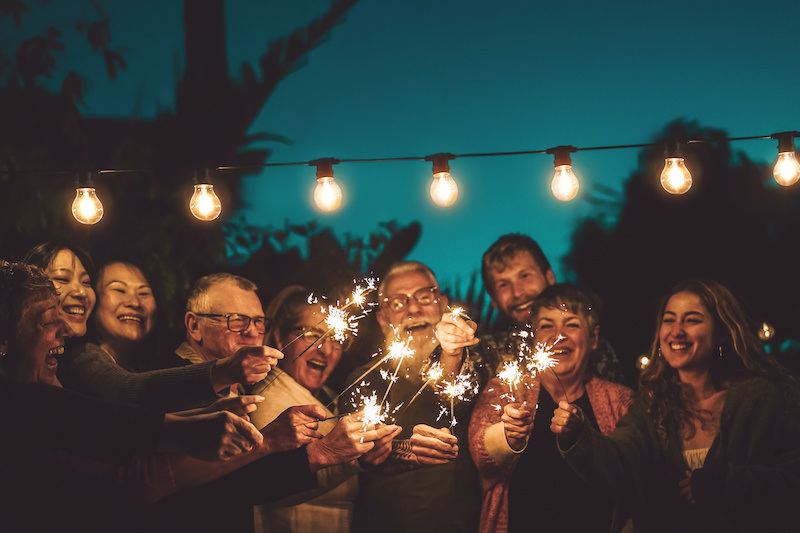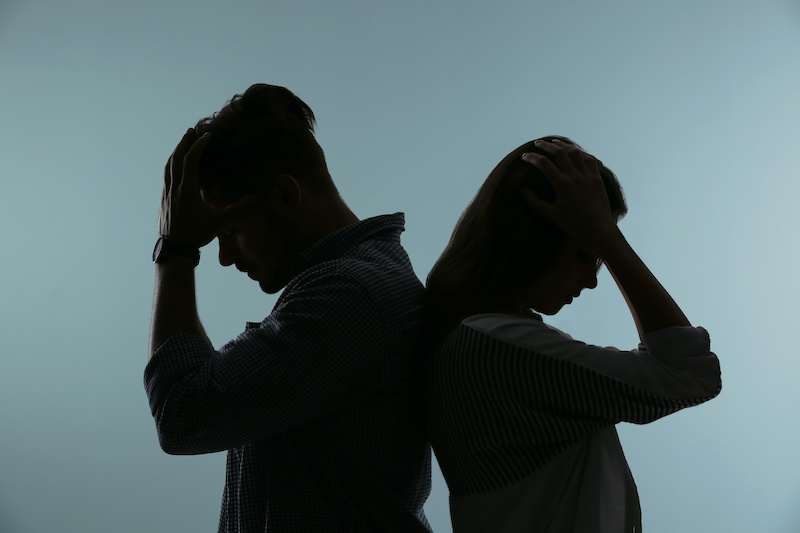The Other Health Crisis: Loneliness
We all have lonely times. Here's what to do to fix that.
Dec 20, 2022
s we often say in these pages, it's vital to eat right, exercise and get plenty of good sleep. But emerging science makes it clear: sociability matters to your physical health far more than you might think.
In fact, meeting your social needs might help keep you alive.
As hunger and thirst prod you to seek food (seafood, we humbly suggest) and water, loneliness is a signal that you need other people. But who wants to admit that they're lonely? It seems a shameful secret, especially when we compare our lives to the happy scenes curated for Facebook and Instagram.
In fact, no one should feel ashamed of needing others. Human beings are profoundly social. As Vivek Murthy eloquently explains in his book Together: The Healing Power of Human Connection in a Sometimes Lonely World, we are wired by evolution for far more connection than most modern American lives easily offer.
Research tells us that that loneliness is a root cause of division in our politics, difficulties for children in school, workplace stress and poor physical health.
Enough negatives. How is connecting with each other positive?
The Power of Connecting
The statistics are dramatic: Strong relationships improve your odds of survival by 50 percent. Surviving what? It doesn't matter. In a breakthrough meta-analysis, this finding was consistent across age, sex, initial health status, cause of death, and follow-up period.
Isolation is more harmful than not exercising and twice as harmful as obesity. It is as dangerous as alcoholism or smoking fifteen cigarettes a day.

These conclusions come from comparing death rates against the social habits of more than 300,000 people in 148 studies.
Among older people, social isolation has been linked to a 50 percent higher risk of dementia, a 29 percent higher risk of heart disease and a 32 percent higher risk of stroke.
One of the most powerful positive steps we can take as a society and as individuals is to reduce loneliness.
Loneliness is Common
Research indicates we need three kinds of connection:
Emotional intimacy:A strong core relationship - not necessarily a marriage - is correlated with lower blood pressure while you sleep, says Julianne Holt-Lunstad at Brigham Young University, who also led the mortality study. Yet one in five Americans reports rarely or never feeling close to people. Only about half of Americans, 53 percent, say they have a long conversation with a friend or spend time interacting with family every day (Cigna, 2018).
A social circle: You can have a strong marriage and still be lonely without a happy, convivial workplace to fill your days. People who are underemployed are lonelier than over-workers, likely because they are missing out on the feeling of being useful.
A community: The trends are for Americans to change colleges and jobs more frequently and to do more work on a freelance basis. All incline us toward isolation from traditional community ties like shared schools, sports teams, farmers' markets, festivals and fairs.
So perhaps it's not so surprising that in a 2019 survey from the insurer Cigna, 61 percent of Americans reported feeling lonely, up from 54 percent in 2018. Nearly 80 percent of Gen Zers and 70 percent of millennials are lonely, compared to 50 percent of boomers.

Proximity and resources help. Contrary to the idea that urban professional life is especially lonely, the loneliest people are the rural poor.
How Loneliness Affects the Body
Emotions are physical states. Over time, loneliness induces a kind of “premature aging," A University of Chicago researcher had volunteers fill out forms gauging their loneliness throughout the day while attached to biosensors. Loneliness was linked to higher blood pressure.
That makes sense, as physiologically, we experience social isolation as a threat to our survival. Our bodies are like infants crying for milk, terrified if no caregiver arrives. Isolated people live in a state of ramped-up inflammation, as if they always had the flu.
This affects both our resistance to opportunistic infections and our ability to recover. If you develop heart disease, strong connections help keep you alive longer.
When Relationships Go Bad

Of course, not all relationships serve your health or happiness. Conflict in any close relationship shows up as higher blood pressure for women, and especially if they're fighting with a spouse. In the same study, single people did better than did the unhappily married.
In another study, researchers fit 42 couples with small suction devices that created eight tiny blisters on their arms. Hostile couples needed two days longer for the wounds to heal.
How to Overcome Loneliness
Researchers offer these recommendations:
- Devote at least 15 minutes each day to connecting with those you most care about. The digital age offers endless ways to connect – use them!
- Focus on each other. Forget about multitasking. Make eye contact. Give full attention. Genuinely listen.
- Though it may seem paradoxical, embrace solitude. Time alone to walk, meditate and pray, if done consciously and with intention, can renew your energy and motivation to connect with others.
- Help and be helped. Seek opportunities to make another happy, if only just by offering a smile.
Remember, overcoming loneliness is a rare win-win. Both you and those with whom you connect are solving the same problem. Never be afraid to reach out to help both yourself and another.







